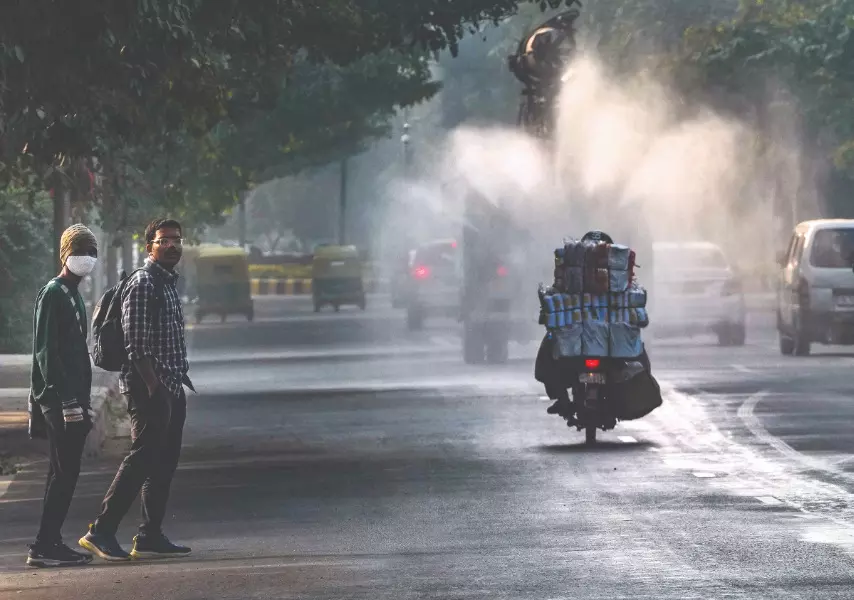SC seeks Delhi’s affidavit on equipment amid claims of distorted AQI readings

New Delhi: The Supreme Court on Monday directed the Delhi government to submit a detailed affidavit explaining the type of equipment used to measure air quality in the capital, along with an assessment of their accuracy and efficiency. The direction came after concerns were raised that AQI readings at certain monitoring stations may have been distorted due to water sprinkling in their vicinity.
A bench led by Chief Justice of India BR Gavai, along with Justices Vinod Chandran and NV Anjaria, instructed the Delhi government to furnish the affidavit by Wednesday. “Let GNCTD file an affidavit explaining the nature of equipments being used and their efficiency to gauge AQI monitors. Please bring it day after tomorrow (Wednesday),” the CJI ordered. The issue surfaced after amicus curiae and Senior Advocate Aparajita Singh referred to media reports alleging that water was being sprayed around monitoring stations, potentially affecting pollution readings. Responding to this, Additional Solicitor General Aishwarya Bhati, appearing for the Centre, denied deliberate tampering. “This sprinkling of water is happening across the city… Political parties are spreading such videos,” she said. CJI Gavai, however, noted, “I saw the sprinkling around Supreme Court too.”
The hearing also focused on the recurring concerns of stubble burning. Singh told the court that the number of farm fires was being underreported. Although official figures suggest a decline from 28,000 incidents to 4,000, Singh said experts and the Commission for Air Quality Management (CAQM) believe the actual count is higher. She emphasised that farmers resort to burning because of limited turnaround time between harvesting and sowing and said that subsidised machinery and compensation could help reduce burning. “From 2018, machineries are being given to farmers… Punjab says if Rs.2,100 per quintal compensation is given, an attempt can be made to tackle the issue,” she said.
Senior Advocate Gopal Sankaranarayanan submitted that Delhi’s pollution levels had worsened this year, calling for urgent action. “There is alarming increase in lung cancer. Three out of ten deaths in Delhi is due to air pollution… EPCA and CAQM are not capable to tackle this,” he warned, urging the court to consider more stringent interventions.
The Bench, however, declined to halt all construction or industrial activity in the capital, noting the economic implications. “Large chunk of population depend on the various activities for their livelihood,” the court said, adding that restrictions already follow expert-designed graded norms under GRAP.
The court also sought coordinated efforts from the Union Environment Ministry and the state governments of Punjab, Haryana, Uttar Pradesh and Rajasthan. The matter will be taken up again on November 19.



